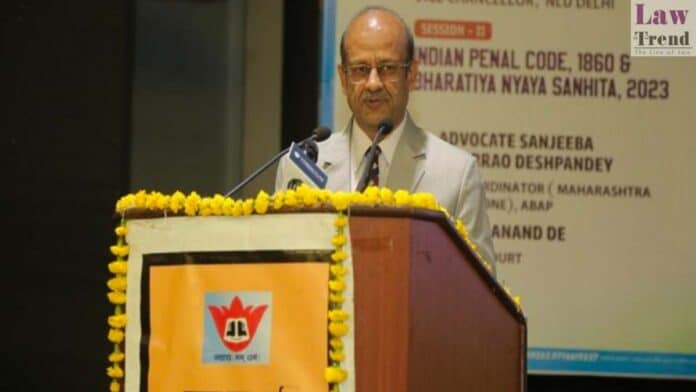At a book release event in the Delhi High Court, Supreme Court Justice Rajesh Bindal emphasized the importance of preventing situations that necessitate victim compensation, highlighting that such compensations often offer minimal solace to the victims. The event, held on Wednesday, marked the launch of two significant books addressing victim compensation and women’s rights protection.
The books, authored by advocates Anil Kathuria and Renu Grover, are titled “Evaluation of Compensation Measures for Riot Victims in India” and “Protection of Women’s Rights against Domestic Violence in India.” Kathuria, with a background as a loss assessor, and Grover, a former law officer with the northeast Delhi riots claim commission, bring a wealth of experience and insight into the complexities of victim compensation and legal protections.
In his address, delivered in Hindi, Justice Bindal reflected on the limitations of compensation systems: “A person has lost his means of earning. How will you compensate him? Courts have indeed devised certain formulas for providing compensation, and these are improving over time. However, the key is to prevent a situation where compensation has to be provided because you cannot really compensate anyone adequately.”
Justice Bindal also highlighted a significant shift in compensation frameworks where homemakers’ contributions are now being assessed comparably to their male counterparts, acknowledging the extensive hours they invest which often double those of male income earners. This adjustment in valuation marks a progressive step in acknowledging the economic value of homemakers.
Moreover, Justice Bindal addressed the challenges of false victim claims and the exploitation of compensation schemes, underscoring the need for stringent verification processes to ensure that only genuine victims benefit. He noted that riot-related incidents pose particular difficulties in accurately compensating innocent sufferers.
The event also delved into issues of domestic violence, where Justice Bindal pointed out an alarming rise in reported cases alongside a concerning number of unreported real crimes. He stressed the troubling trend of legal system clogs due to excessive litigation in matrimonial disputes, citing extreme examples where couples filed numerous cases against each other, severely straining judicial resources.*
Justice Bindal called on legal professionals to adopt a more proactive role in mediation and guidance to mitigate such legal entanglements and protect the social fabric from further deterioration. He concluded by expressing concern over the impact of these disputes on children, who often emerge as the most significant collateral damage in such situations.




